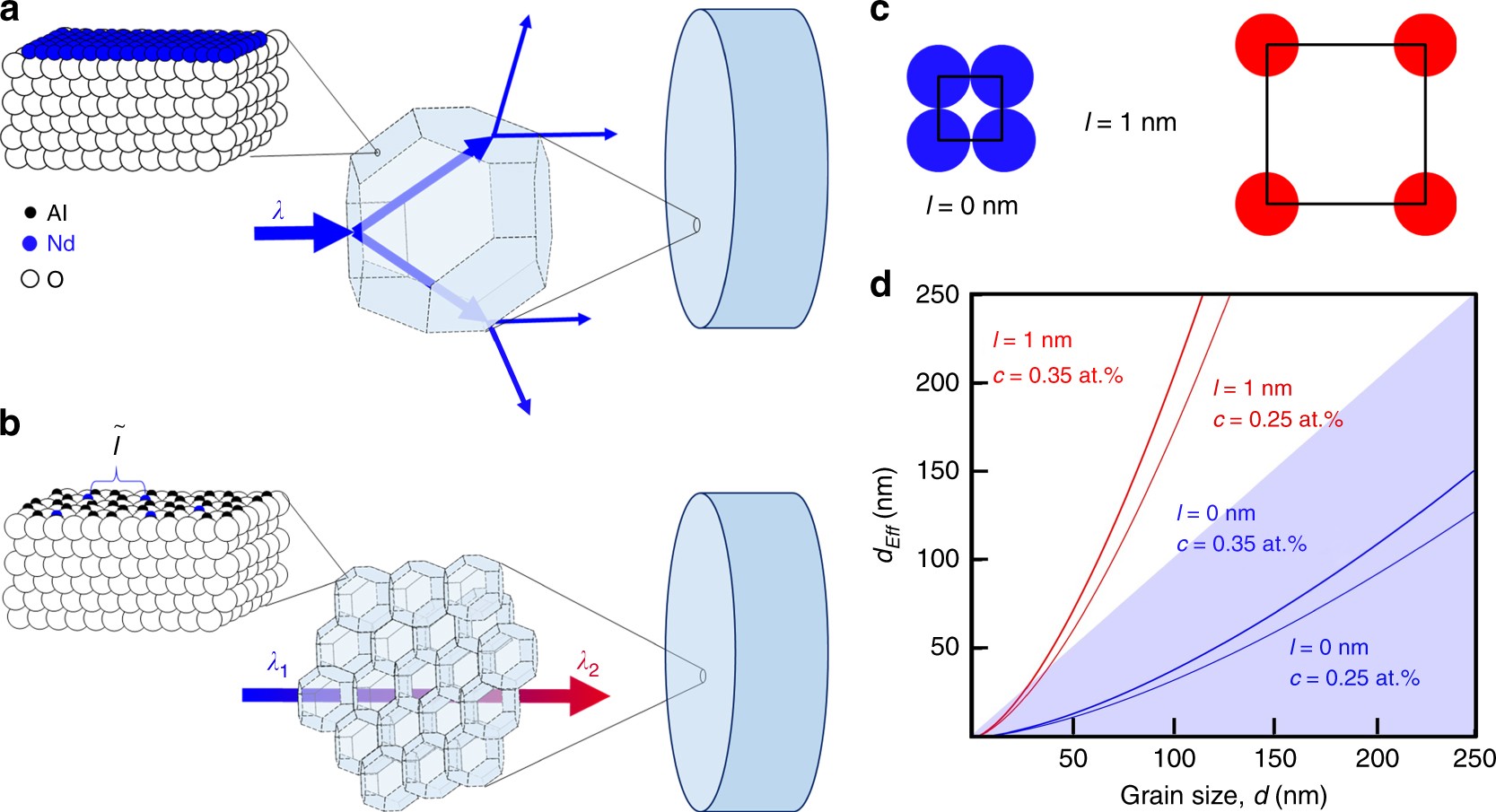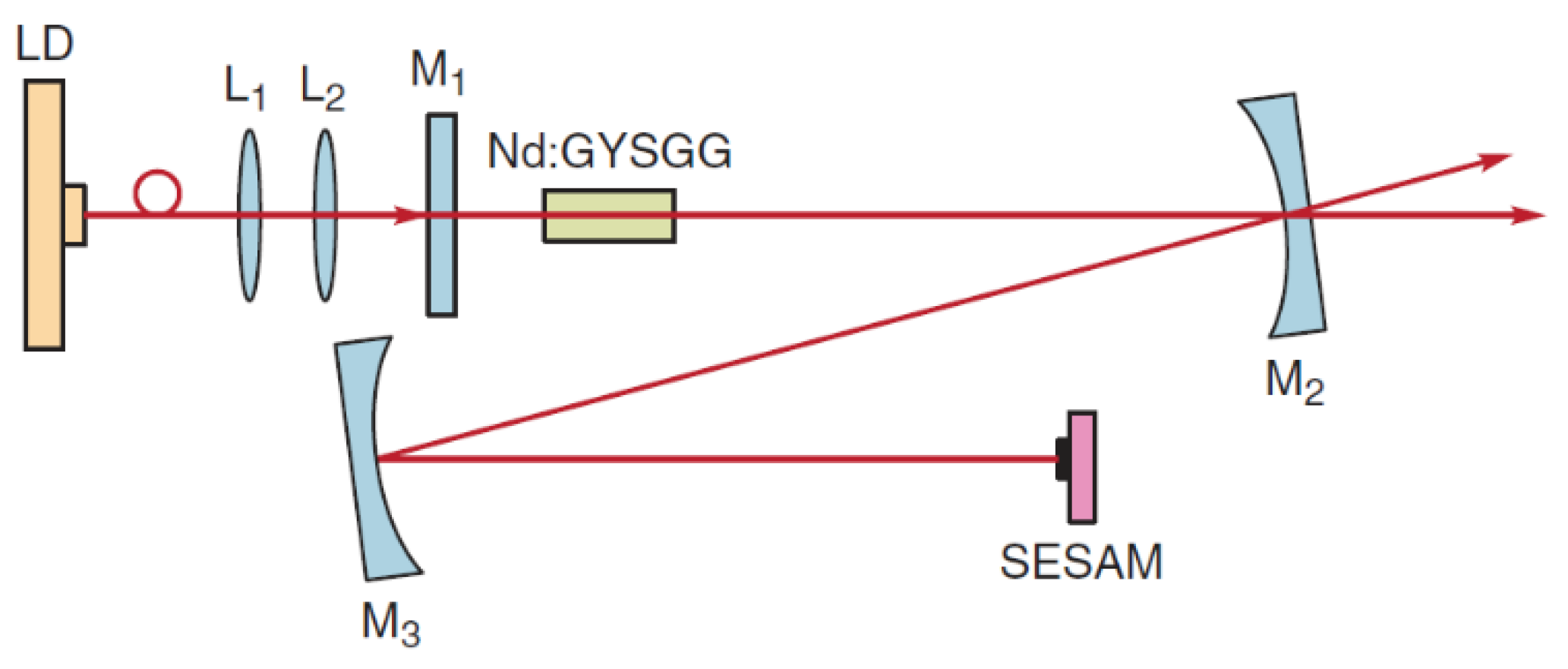Contents

Source: Nature
<>
Neodymium-Doped Gain Media in Laser Technology
Introduction to Neodymium
Neodymium (chemical symbol: Nd) is a rare earth metal commonly used in laser technology as the laser-active dopant in gain media. It is typically utilized in the form of the trivalent ion Nd3+ in various host materials, including crystals and glasses.
Working Principle
Neodymium is usually pumped at 808 nm, but higher efficiency can be achieved by pumping at 869 nm. The primary laser transition is from 4F 3/2 to 4I 11/2, resulting in a 1064 nm output. Other transitions can produce different wavelengths, necessitating wavelength filters to suppress lasing at 1064 nm.
Energy Level Structure
Neodymium-doped gain media exhibit four-level behavior, except for 946-nm Nd:YAG lasers, which are quasi-three-level lasers due to their ground-state configuration. Energy losses can occur at high excitation densities through upconversion to higher levels.
Types of Neodymium-Doped Gain Media
The most common neodymium-doped gain media include Nd:YAG, Nd:YLF, and Nd:YVO4. Less common options like Nd:GdVO4 and Nd:GDD are also used for specific applications.
Advantages and Competition
Neodymium-doped gain media face competition from ytterbium-doped media in the 1-μm spectral region. While ytterbium-doped media offer advantages like a smaller quantum defect and simpler energy level structures, neodymium-doped media are preferred in certain scenarios due to their behavior.
Conclusion
Neodymium-doped gain media play a crucial role in laser technology, offering a versatile and efficient solution for various applications. Understanding the properties and applications of these materials is essential for optimizing laser performance.

Source: MDPI
Feel free to comment your thoughts.



